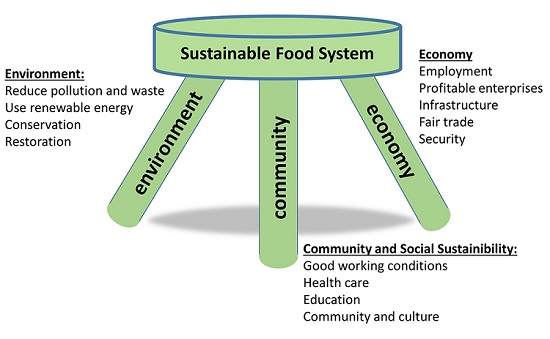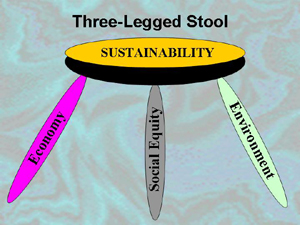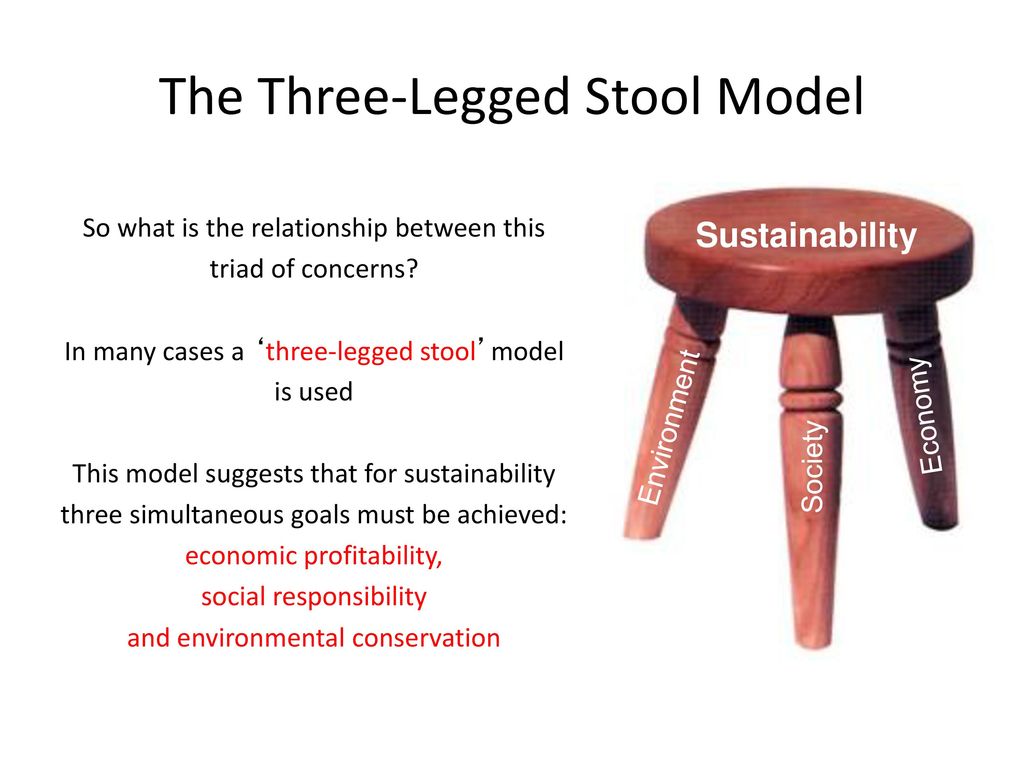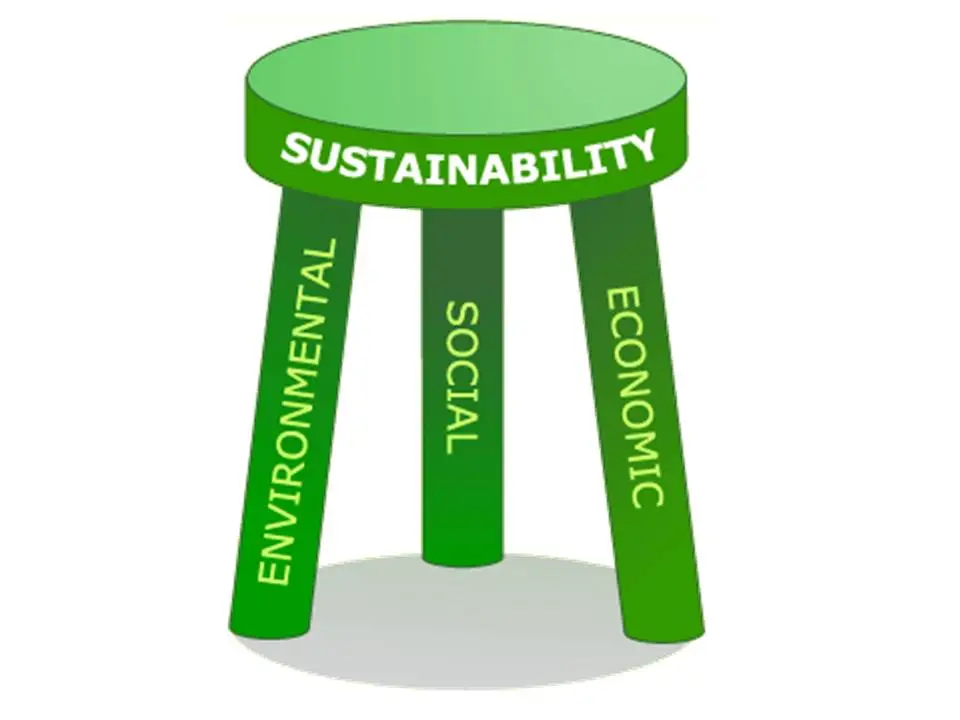For example an early suggestion for a model which reflects sustainable development was the three pillared or three legged stool model which emphasised that all three dimensions must remain.
Sustainability 3 legged stool model.
The three legged stool of sustainable development the underlying conceptualization of the stool is that if any leg is less important shorter or missing the stool will be unstable.
Three pillars of sustainability.
If any one pillar is weak then the system as a whole is unsustainable.
Three legged stool a common model of sustainability is made up of a triad of economical social and environment sustainability.
The faulty three legged stool model of sustainable development.
However if all three legs are the same length each pillar being given equal weight the result will be a balanced stool that will support sustainable development.
This consists of at least the economic social and environmental pillars.
The 3 legged stool metaphor reinforces the three dimensions that are required for us to enjoy a high quality of life and shows that society is unstable if one of them is weak.
Sustainability the three legged stool model reinforces the three dimensions that are required for us to enjoy a hi gh quality of life and suggests that society is unstable if one of them is weak.
The model is conceptually considered as the three legged stool hasna 2006 of sustainability in that each of the legs is equally important in building a sustainability standard that is sound and balanced.
In search of conceptual origins ben purvis1 yong mao1 2 darren robinson1 3 received.
Social security employee pensions and.
It is widely agreed that there are three primary aspects to sustainable development that together create a three legged stool upon which a healthy society can sit.
The three pillars of sustainability.
The three legged stool is an old phrase that many financial planners once used to describe the three most common sources of retirement income.
The three pillars of sustainability are a powerful tool for defining the complete sustainability problem.
In part 1 of this article we defined sustainable development as a balanced approach to achieving a better quality of life for more people while minimizing the impact that the associated development has on the natural world.










